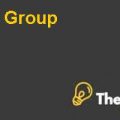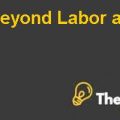
Jabwood Company
Recommendation:
Jabwood is a wood trading company that was founded in 1930s by Mahmoud Jabado. The company’s headquarter was located in Lebanon with four branches in various cities. The Chairman and managing Partner of the company was seeking for international expansion due to the fallen sales and political uprising in Syria as border of both the countries were quite close. Fayez Jabado decided to expand the business either in China or Saudi Arabia or both. All the factors and analysis have shown that expansion in Saudi Arabia will be the best option for the company as it will help the company to achieve its unmet goals and objectives. China can be a wiser option for Jabwood but in the long-run it will not remain wiser as there are countless differences in terms of culture and business style. As of now, the company has to make some quick measures to increase sales and market share, therefore; exporting wood to Saudi Arabia will be a better option than China.
Support:
The analysis done in the exhibits reveals that expanding business to Saudi Arabia will be an excellent growth opportunity for Jabwood. One of the major benefits for Jabwood to expand in Saudi Arabia is the past experience of doing business there, back in 2009. Jabwood has done business with many Saudi companies therefore; it can easily cope up with the cultural barriers and dissimilarities between the two countries.
In order to be successful, Jabwood should consider using its established brand name in Saudi Arabia with the well-reputed TANITA branded wood. In this way, the company could easily succeed in gaining its share in the market. The company is not good in maintaining positive relationships with regulatory bodies thus; they should try to establish good and long-term relationships with them to survive. Porter five forces analysis (Exhibit 8) revealed that competition is intense, therefore; the company should focus on providing quality products and services. As far as the modes of entry are concerned, the company does have availability of three alternatives i.e. FDI, joiny venture and direct export. As suggested by the analysis done in the exhibits, Jabwood should expand its business in Saudi Arabia as the company possesses little or no knowledge about the Chinese market that could act as a major hurdle towards achieving market share. In Saudi Arabia, the company can go for joint venture as it will be the safest option according to the political conditions of the country.
Plan:
In order to make the proposed strategies successful, Jabwood needs to conduct a thorough market research and analysis to find out the change from 2009 to present with regards to political, economic, social and technological factors of the country. Furthermore, to regain its market share the company should first start expanding its business because the company is similar in terms of culture, economy and geography (Exhibit 3). After achieving success, Jabwood can go for other distant and different countries to expand like China. Moreover, exhibit 2 shows that it would be difficult to enter in China because of various differences therefore; the management of the company needs to do proper planning before entering in the Chinese market.
Appendix:
Exhibit 1: Company Background
|
Exhibit 2: SWOT Analysis
Exhibit 3: CAGE Analysis
| China | Saudi Arabia | |
| Cultural differences | Language: different
Religion: different Level of trust: moderate Values: respect for diversity, high level of freedom, high nepotism. |
Language: same as Lebanon
Religion: same as Lebanon Level of trust: moderate Values: gender inequality, importance of family |
| Administrative differences | Currency: different (Yuan)
Political environment: stable |
Currency: Different (Riyal)
Political environment: stable |
| Geographical differences | Time zone: different from Lebanon
Population: densely populated country than Lebanon (1.3 billion) Borders: far from Lebanon |
Time zone: Similar with Lebanon
Population: relatively less but more than Lebanon (28 million) Borders: near to Lebanon |
| Economic differences | Natural resources: not very rich
GDP: 9.1% Per Capita GDP: 5,429 |
Natural resources: extremely rich
GDP: 6.77% Per Capita GDP: 20,540 |
Exhibit 4: New Market Opportunities
| Pros | Cons | |
| Saudi Arabia |
|
|
| China |
|
Cultural barriers
Focus on long-term relationships
|
...........................
This is just a sample partial case solution. Please place the order on the website to order your own originally done case solution.












